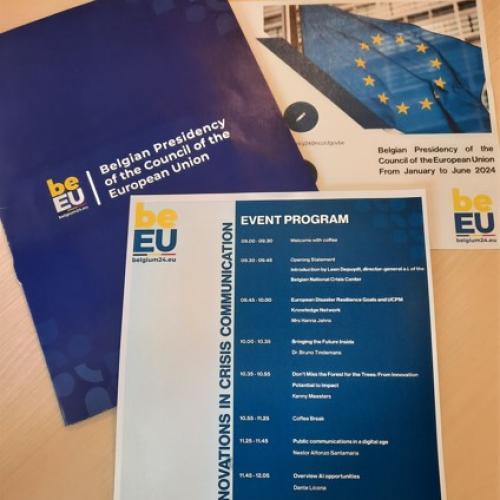Focus on future crises and technological advancements
The key takeaways from the conference were the agreement among participants on the necessity to prioritise preparing for future crises and maximize the potential of technological advancements for effective public communication.
The conference featured presentations on various topics including the responsible and secure use of artificial intelligence, the unpredictable nature of social media, strategies to fight misinformation, the potential of open data, and links between technologies and society for European disaster resilience.
Importance of communication and alerting citizens
The participants agreed that communication with citizens is crucial during crises. Hanna Jahns, director for strategy and policy at the European Commission’s directorate-general for European Civil Protection and Humanitarian Aid Operations (ECHO), highlighted the paradigm shift in how the European Union approaches disaster risk and crisis management. She defined it as a “resilience and preparedness drive in an all-hazard and whole-of-society approach”. The Union’s Disaster Resilience Goals include the strenghtening of risk awareness and preparedness of the population as well as enhancing early warning systems, among others.
Eric Guyader from the European Commission’s directorate-general for defence industry and space (DEFIS) presented the Galileo approach about alerting the population with the help of the satellite navigation system. The Galileo Emergency Warning Satellite service (EWSS) will soon be able to provide alert services everywhere, even when the other alert systems are down.
Hanna Jahns also recalled the role of the Union’s Knowledge Network as part of the Union Civil Protection Mechanism (UCPM) and with a mission to facilitate the exchange of knowledge and best practices within the European disaster risk management community.
The concept, emphasized by experts like Kenny Meesters, is that we should choose “the right tool for the job”, considering factors such as vision, organization structure, and context, rather than relying solely on technology or innovation. For example, during the conference, it was noted that while many have switched to using WhatsApp messages, sending a traditional SMS can still be extremely useful for disseminating alerts during crises.
Fostering future orientation and proactiveness
Nestor Alfonzo Santamaria from the Organisation for Economic Co-operation and Development presented the ways the OECD fosters mutual learning amongst governments to collect data and notable practices on strategic crisis management and to increase resilience in the face of an uncertain future.
Dr Bruno Tindemans, chief foresight officer of the Department of Work of Flanders, urged to make organisations more future orientated and proactive – “bringing the future inside”.
